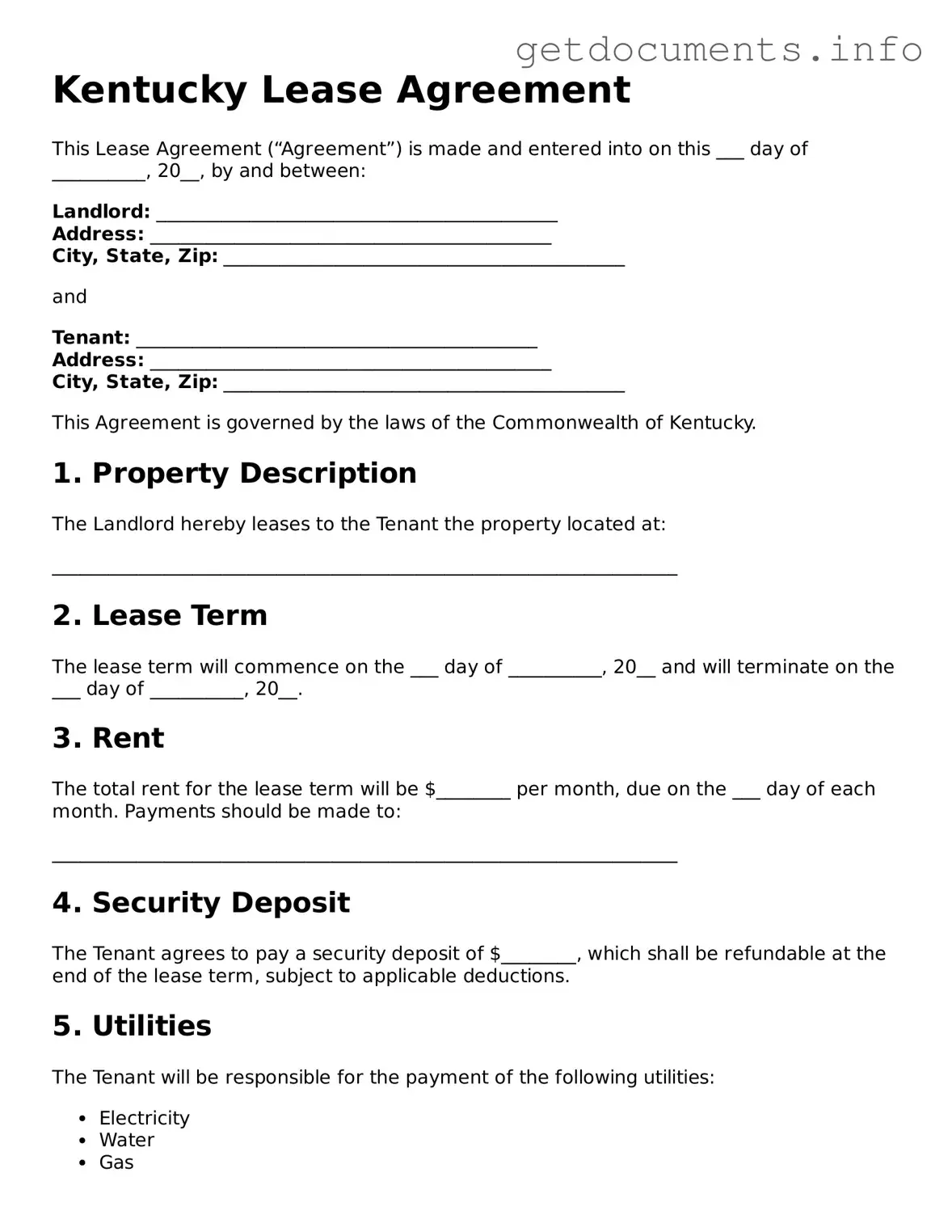Free Lease Agreement Template for Kentucky
A Kentucky Lease Agreement is a legal document that outlines the terms and conditions between a landlord and tenant for renting residential or commercial property in Kentucky. This agreement serves to protect the rights of both parties and ensures a clear understanding of their responsibilities. To get started on your lease agreement, fill out the form by clicking the button below.
Access Lease Agreement Editor

Free Lease Agreement Template for Kentucky
Access Lease Agreement Editor
Got places to be? Complete the form fast
Fill out Lease Agreement online and avoid printing or scanning.
Access Lease Agreement Editor
or
⇩ PDF File
